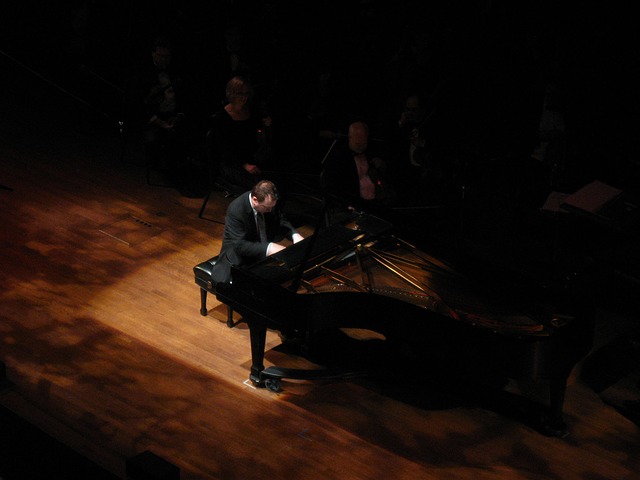The Sydney International Piano Competition is currently underway at the Conservatory of Music in Sydney, running from July 6-23. For piano junkies like myself, who pronounce the acronym as “sip-ke” it is a feast, hell, it’s an orgy, for the ears, which, given it is held every four years, is a bit like our Olympics.
It follows a similar format to a tennis grand slam; hundreds of applicants are whittled down to 32, who compete in a series of rounds, performing longer and longer sets, and more difficult music, with the top six performing concertos at the Sydney Opera House for the final.
The tone of music you will hear in a piano competition is a little different to what you will hear in a concert from a touring pianist. When a professional presents a concert on a tour, they may present a balance of music from two or more contrasting or complementary musical eras and composers; for example, some Bach from the Baroque Era, leading into a Mozart Sonata from the classical, then skipping to some early Twentieth Century Shostakovich; or they may present an entire collection from a suite of compositions which have artistic and historical significance, such as all 24 of Chopin’s Preludes, Opus 28, or all of Rachmaninov’s Etude Tableaux from Opus 33 and 39.
In a competition, what you generally hear are the highlights: the biggest, the most virtuosic, and most famous pieces from the repertoire. Due to specific categories being demanded in each category, and the ultra-competitive nature of the event, one will often hear the same incredible work being performed by multiple pianists in a row. Rather than an overload for the listener, it hones the ears to distinguish difference in technique and interpretation from performer to performer; a great example of the way that music which could be centuries old, is still “alive.”
The finals are always spectacular affairs, with contestants regularly choosing the most difficult concertos in the canon, usually the Russians, Rachmaninov and Prokofiev, as they pull out all the stops to impress.
Another element, always present, although not always acknowledged, is the element of bloodlust. In a competition featuring some of the best young pianists, all with formidable techniques, from all over the world, it can be difficult to pick who must drop out from round to round. A wrong note, or just a moment’s slip in concentration, which can lead to a little unevenness in the left hand, or a phrase in the right hand being played too forcefully, rather than sounding like liquid silk, can mean all the difference in the world between success and failure.
For these reasons, piano competitions provide a unique form of entertainment. They are an excellent way to introduce students and music lovers alike to the very best of the piano repertoire. It has been suggested that competitions favour showy playing over more introspective, and perhaps more artistically worthy playing. Some of the great controversies in the classical music world have centred around this fact. But winners still need to display lyricism and subtlety. You can’t just bash your way to victory. Sergei Prokofiev rose to fame/infamy when he performed his first piano concerto at the Saint Petersburg Conservatory in 1914. Argentian pianist Marta Argerich gained her fame when she won the seventh International Chopin Piano Competition in 1965, but then stormed off the voting panel of the tenth in protest when the contestant who she thought was the best didn’t win.
Recognising piano competitions for what they are, their unique place in the classical music scene, and the opportunities they provide to young performers, and just enjoying the show, is the best way to approach them.
I have deliberately avoided politics until this last paragraph, and if you want to, you can skip it. The entire SIPC is being broadcast on ABC Classic FM radio around the country. You can listen to it during the day at work, in the car or on public transport on the way home, and in the evening as you relax. Simply put, this is exactly the sort of thing our publicly funded broadcaster should be doing. However, I am quite sure a private organisation could pull it of just as well, and they could most likely turn a profit.
To finish off, let’s listen to a bit of Martha Argerich, performing Chopin’s Mazurka Opus 59, No. 1, from that competition in 1965.










